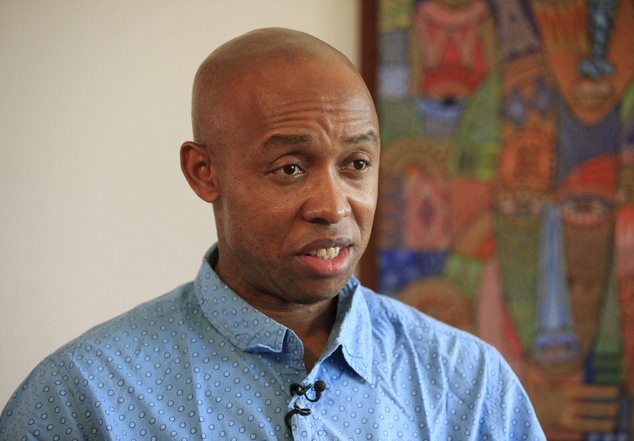#NigeriaDecides2023 could be decided in places where no votes can take place, By Chidi Anselm Odinkalu

One thing is clear though: Nigeria's 2023 elections may well be decided in places where it may be impossible for any human being to vote. To avoid this, we must insist that INEC disclose all such locations well before the poll so that everyone can verify that there will be no results from such a location.
When it finally took place on February 23, 2019, the presidential election in Nigeria was not without suspense. Northeastern Nigeria, home to a counter-civilization insurgency for more than a decade, was a natural location for the incidents. In 2019, he did not disappoint a country in which the things that can happen in elections often defy both logic and the laws of physics.
Geidam is a settlement located about 240 kilometers east of Damaturu, the capital of Yobe State in the northeast. The governor of the term-limited state in 2019, Ibrahim Geidam, took his surname from the town around which he was registered to vote. That day, however, Geidam suffered an attack by insurgents, which involved improvised explosive devices (IEDs). Also on the same day, less than 30 kilometers from Damaturu in the Gujba Local Government Area (LGA), the insurgents also attacked Buni Yadi, the settlement in which they had destroyed a prominent public high school five years earlier. and slaughtered countless schoolchildren.
Following the attacks, several observers of the day reported that "voter turnout appeared low as authorities attempted to calm panicked and skeptical residents." The attack was so severe that "Governor Gaidam did not travel to his neighborhood of Bukarti near the town of Gaidam 230 kilometers from the state capital to vote."
When the votes took place, the national turnout in 2019 was 34.75%. It would have been much worse without places like Geidam, Yobe State and the North Eastern States, which had an average regional turnout of just under 42%.
Despite the insurgency and attacks, Geidam helped Yobe State achieve a voter turnout of 42.9% in 2019, only slightly lower than the 43.9% recorded in Adamawa State. origin of Atiku Abubakar, presidential candidate of the opposition People's Democratic Party. (PDP) and 43.3% in Bauchi State. Voter turnout in Yobe was easily higher than its more peaceful regional neighbours: Borno, 41.2%; Gombe, 41.9%; and Taraba, 41.7%. It also compared favorably with 45.6% in 2015 and 44% in 2011. Essentially, across three election cycles in a decade of growing insurgency, voter turnout in Yobe State was almost constant. p>
By comparison, in the South West states of Nigeria, which have not been exposed to large-scale violence like the North East, the turnout in 2019 was: Ekiti, 43.7%; Lagos, 18.3%; Ogun, 25.9%; Ondo 32.4%; Osun, 43.7%; and Oyo 31.9%.
These data present a conundrum for those wishing to understand the correlation between structural insecurity and the exercise of the right to vote or electoral participation. Contrary to the intuition that an in...


One thing is clear though: Nigeria's 2023 elections may well be decided in places where it may be impossible for any human being to vote. To avoid this, we must insist that INEC disclose all such locations well before the poll so that everyone can verify that there will be no results from such a location.
When it finally took place on February 23, 2019, the presidential election in Nigeria was not without suspense. Northeastern Nigeria, home to a counter-civilization insurgency for more than a decade, was a natural location for the incidents. In 2019, he did not disappoint a country in which the things that can happen in elections often defy both logic and the laws of physics.
Geidam is a settlement located about 240 kilometers east of Damaturu, the capital of Yobe State in the northeast. The governor of the term-limited state in 2019, Ibrahim Geidam, took his surname from the town around which he was registered to vote. That day, however, Geidam suffered an attack by insurgents, which involved improvised explosive devices (IEDs). Also on the same day, less than 30 kilometers from Damaturu in the Gujba Local Government Area (LGA), the insurgents also attacked Buni Yadi, the settlement in which they had destroyed a prominent public high school five years earlier. and slaughtered countless schoolchildren.
Following the attacks, several observers of the day reported that "voter turnout appeared low as authorities attempted to calm panicked and skeptical residents." The attack was so severe that "Governor Gaidam did not travel to his neighborhood of Bukarti near the town of Gaidam 230 kilometers from the state capital to vote."
When the votes took place, the national turnout in 2019 was 34.75%. It would have been much worse without places like Geidam, Yobe State and the North Eastern States, which had an average regional turnout of just under 42%.
Despite the insurgency and attacks, Geidam helped Yobe State achieve a voter turnout of 42.9% in 2019, only slightly lower than the 43.9% recorded in Adamawa State. origin of Atiku Abubakar, presidential candidate of the opposition People's Democratic Party. (PDP) and 43.3% in Bauchi State. Voter turnout in Yobe was easily higher than its more peaceful regional neighbours: Borno, 41.2%; Gombe, 41.9%; and Taraba, 41.7%. It also compared favorably with 45.6% in 2015 and 44% in 2011. Essentially, across three election cycles in a decade of growing insurgency, voter turnout in Yobe State was almost constant. p>
By comparison, in the South West states of Nigeria, which have not been exposed to large-scale violence like the North East, the turnout in 2019 was: Ekiti, 43.7%; Lagos, 18.3%; Ogun, 25.9%; Ondo 32.4%; Osun, 43.7%; and Oyo 31.9%.
These data present a conundrum for those wishing to understand the correlation between structural insecurity and the exercise of the right to vote or electoral participation. Contrary to the intuition that an in...
What's Your Reaction?






















